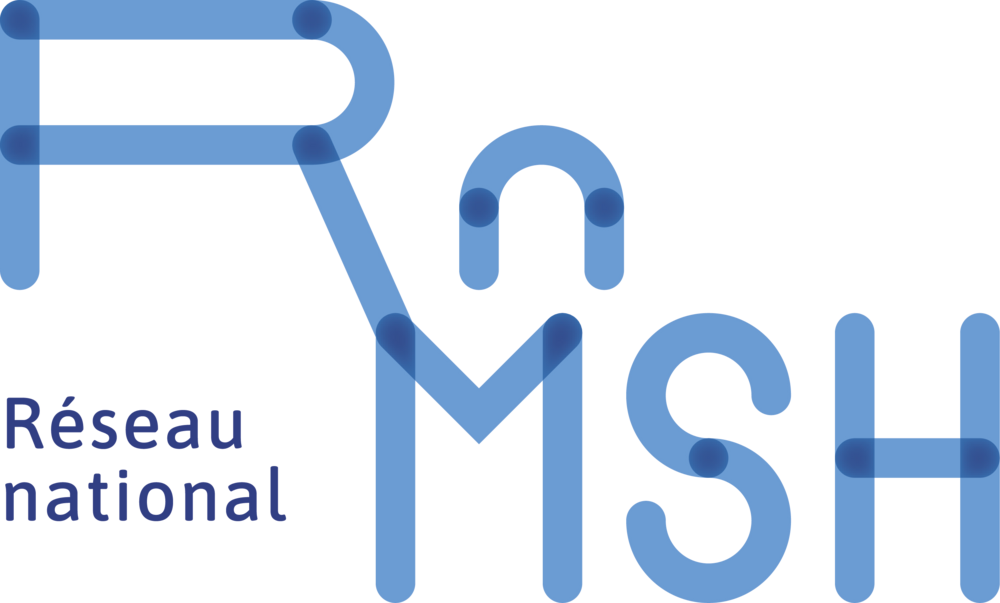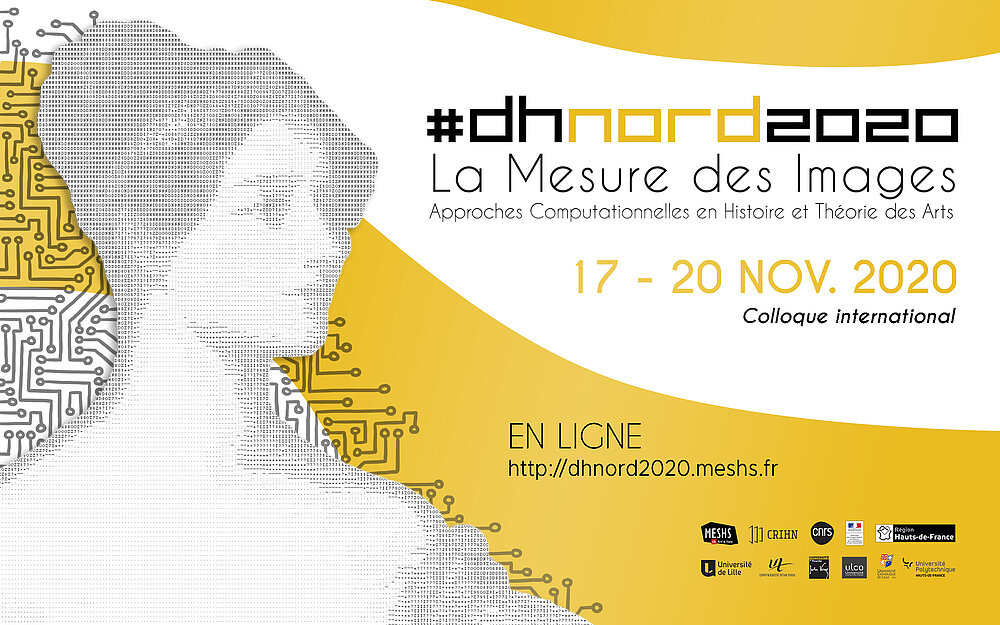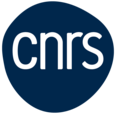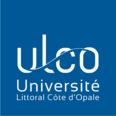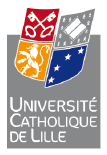Colloque DHNord 2020
La mesure des images
Approches computationnelles en histoire et théorie des arts
Le colloque #dhnord réunit chaque année à la Maison Européenne des Sciences de l’Homme et de la Société de Lille (MESHS) la communauté des humanités numériques. La thématique retenue pour 2020 porte sur les approches computationnelles des images en histoire et théorie des arts. Ce colloque réunira pour la première fois en France les principaux spécialistes de l’intelligence artificielle appliquée aux arts. L’histoire des arts et de la culture ainsi que l’esthétique ont largement bénéficié ces dernières années du fruit des campagnes de numérisation patrimoniales qui ont profondément renouvelé les corpus. Depuis 2013, l’histoire numérique de l’art a connu un essor sans précédent en particulier dans les sphères anglo-saxonnes et en Europe. Alors que l’analyse des textes a longtemps été privilégiée par les humanités numériques, il devient désormais possible de mener des analyses computationnelles sur la matière même des images, ou encore sur des objets en 3D, ce qui constitue un tournant majeur. Ce colloque permettra d’explorer la manière dont les méthodes computationnelles renouvellent les questions traditionnelles de l’histoire des arts, de l’esthétique et des cultures visuelles (processus de création, style, forme, attribution, iconologie, circulation des œuvres, etc.) et suscitent des questions de recherche inédites pour nos disciplines (arts visuels, architecture, théâtre, cinéma, photographie...) à l’heure où de nouveaux outils disponibles pour les chercheurs apparaissent.
Programme
Circulations
Atelier pratique
13h-16h
Fouille d'images patrimoniales : expérimentations, outils
Jean-Philippe Moreux, expert scientifique de Gallica à la Bibliothèque nationale de France
Conférences
En différé
Tracking the Circulation of Images Digitally: From Artistic Cartography to the Study of Visual Contagions
Béatrice Joyeux-Prunel (University of Geneva)
The Art Historical Image Collection at Columbia University: Automating Research on Its Construction and Creators
Stefaan Van Liefferinge, Gabriel S. Rodriguez & Lisa Peck (Media Center for Art History, Columbia University)
Stéréotypes viraux : analyser les circulations historiques de l'image médiatique au prisme du deep learning
Pierre-Carl Langlais (Université Paul-Valéry Montpellier 3, Sorbonne Université)
Paintings by Artificial Intelligence. Large-scale search for visual similarities
Isabella di Lenardo (École polytechnique fédérale de Lausanne)
Table ronde
17h-18h30
From One Image to Another: Circulations, Transmissions, and Intervals
Modération : Nuria Rodríguez Ortega (University of Málaga)
Interventions :
- Béatrice Joyeux-Prunel (University of Geneva)
- Stefaan Van Liefferinge (Media Center for Art History, Columbia University)
- Isabella di Lenardo (École polytechnique fédérale de Lausanne)
- Pierre-Carl Langlais (Université Paul-Valéry Montpellier 3, Sorbonne Université)
Understanding images through AI
Modelization and operationalizing
Ateliers pratiques
10h-12h
Adopter et utiliser les standards IIIF pour vos corpus d'images numériques
Régis Robineau, coordinateur technique de Biblissima
Johann Holland (TGIR Huma-Num)
13h-15h
Extraction automatique d’illustrations et lignes de texte au sein de documents IIIF
Tom Monnier, doctorant à Imagine (École des Ponts ParisTech)
Conférences
En différé
Transfer Learning and Visualization of Neural Networks for Artistic Images
Nicolas Gonthier, Yann Gousseau & Saïd Ladjal (Télécom Paris)
Angelic Movement. Exploring and Understanding Art, Iconography and Composition with Machine Learning
Peter Bell (University of Erlangen-Nürnberg)
"I Want to Dance": Comparative K-Pop Choreography Analysis Through Deep-Learning Pose Estimation
Timothy R. Tangherlini (University of California, Berkeley)
Peter Broadwell (Stanford University)
Yet another digital surrogate? Computer vision and the future of collections management systems
Matthew Lincoln (Carnegie Mellon University)
Table ronde
17h-18h30
Understanding Images Through Machine Learning and Deep Learning
Modération : Taylor Arnold (University of Richmond)
Interventions :
- Peter Bell (University of Erlangen-Nürnberg)
- Nicolas Gonthier (Télécom Paris)
- Matthew Lincoln (Carnegie Mellon University)
- Timothy R. Tangherlini (University of California, Berkeley)
From Artificial Intelligence to Aesthetic Intelligence
Conférences
En différé
The Image-Theories behind Computer Vision
Leonardo Impett (University of Durham)
Image Mis-recognition: Augmentation, Automation, and Aesthetic Intelligence
Johanna Drucker (University of California, Los Angeles)
Une machine qui lit les images : une histoire socio-technique de l'intelligence artificielle en vision par ordinateur
Dominique Cardon (Sciences Po)
Table ronde
17h-18h30
From Artificial Intelligence to Aesthetic Intelligence
Modération :
- Clarisse Bardiot (Université Polytechnique Hauts-de-France)
- Emmanuel Château-Dutier (Université de Montréal)
Interventions :
- Dominique Cardon (Sciences Po)
- Johanna Drucker (University of California, Los Angeles)
- Leonardo Impett (University of Durham)
AI Aesthetics to Cultural Analytics
Conférence
En différé
The Augmented Dataset: Artistic Appropriations of Gans and Their Bearings on Ethical Considerations of Artificial Intelligence
Emily L. Spratt (Columbia University)
Table ronde
12h-13h30
"Cultural Analytics" : un dialogue entre Lev Manovich et Emily L. Spratt
Modération :
- Everardo Reyes (Université Paris 8)
Interventions :
- Lev Manovich (City University of New York)
- Emily L. Spratt (Columbia University)
Digital Tools
Conférence
En différé
ImageGraph: A Visual Programming Language for the Visual Digital Humanities
Leonardo Impett (University of Durham)
Distant Viewing Toolkit: Software for Analysing Visual Culture
Lauren Tilton & Taylor Arnold (University of Richmond)
Infrastructure
Table ronde
17h-18h30
The Stakes of AI for Large Collections of Images and Research Infrastructures
Modération :
- Clarisse Bardiot (Université Polytechnique Hauts-de-France)
- Emmanuel Château-Dutier (Université de Montréal)
Interventions :
- Emmanuelle Bermès (Bibliothèque Nationale de France)
- Antoine Courtin (Institut National d'Histoire de l’Art)
- Nanne van Noord (University of Amsterdam, Netherlands Institute for Sound and Vision)
- Emily Pugh (Getty Research Institute)
- Tristan Weddigen (Biblioteca Hertziana Max-Planck-Institute, University of Zurich)
- Dario Negueruela del Castillo (Max Planck Society, University of Zurich)
Comité scientifique
- Clarisse Bardiot (UPHF, MESHS)
- Emmanuel Château-Dutier (Université de Montréal, CRIHN)
- Elise Baillieul (Université de Lille)
- Antoine Courtin (INHA)
- Océane Delleaux (Université de Lille)
- Béatrice Joyeux-Prunel (University of Geneva)
- Nicolas Hervé (INA)
- Kristin Tanton (Université de Montréal, CRIHN)
- Nicolas Thély (University of Rennes, MSHB)
Organisation
- Humanités numériques : Edward J. Gray et Vistoria Le Founer (MESHS)
- Graphisme et communication : Adèle Huguet, Jaymes Kalala et Mathilde Wybo (MESHS)
- Régie technique et logistique : Alexis Grillon, Denis Duvet et Marie-Catherine Malaquin (MESHS)
- Gestion financière : Aurélie Le Bizec et Karine Warme (MESHS)

